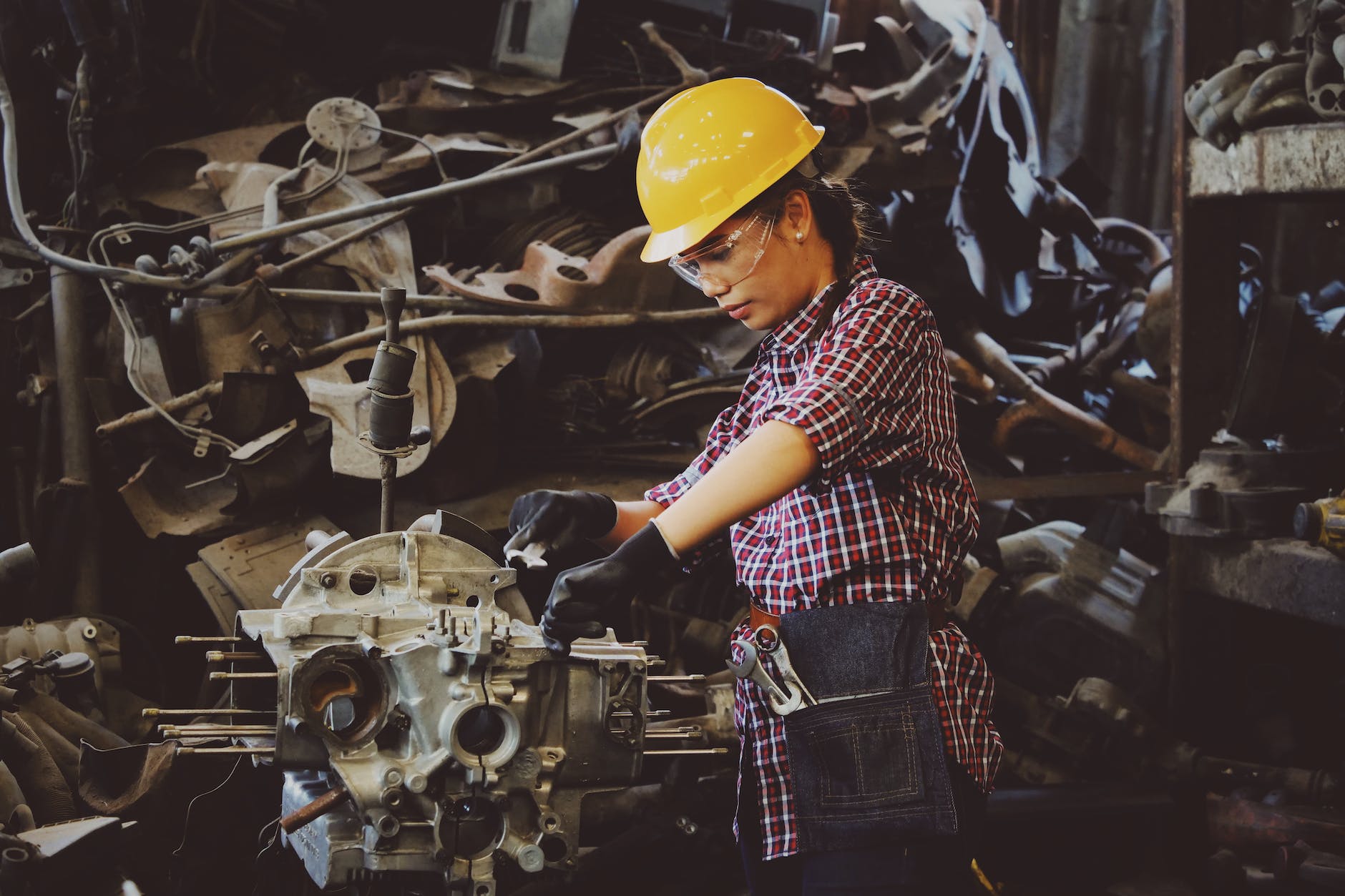
Photo by Chevanon Photography on <a href="https://www.pexels.com/photo/woman-wears-yellow-hard-hat-holding-vehicle-part-1108101/" rel="nofollow">Pexels.com</a>
Business premise maintenance is an important part of keeping any organization running efficiently. It ensures that the premises are in good condition and limits disruption due to unexpected breakdowns or repairs. Poorly maintained business premises can result in higher operating costs, lost productivity, and even safety hazards. Keeping up with regular maintenance tasks can help you prevent costly repairs and replacements and increase the longevity of your premises and their associated systems.
Identify needs
Implementing effective business premise maintenance requires an understanding of the needs of the premises and its associated systems. It starts with a comprehensive evaluation of the condition of all aspects of the premises, including visible elements and those that are not easily seen but remain essential to the functioning of any building. A thorough assessment should be conducted to identify necessary repairs, renovations or replacements that need to be completed to ensure that your business runs smoothly. The next step is creating a schedule for regular maintenance tasks. The type and frequency of these activities will depend on the type of system being maintained – for example; electrical systems may require more frequent inspections than plumbing fixtures.
Set up a preventive maintenance program
Once the needs of your premises have been identified, you can set up a preventive maintenance program. This involves scheduling regular maintenance tasks to ensure that your premises are kept in good condition. Examples of preventive maintenance tasks include:
- Checking and cleaning air conditioning units.
- Inspecting plumbing systems for leaks.
- Lubricating machinery.
Additionally, International Mechanical – Welding hot tapping can be used to inspect pipes for corrosion or blockages, ensuring water quality is maintained.
In addition to scheduled preventive maintenance activities, it is important to set up an emergency plan in case of unexpected damage or disruption caused by a natural disaster or other unforeseen event. This plan should outline the steps necessary to respond quickly and efficiently to minimize damage and downtime. This may involve having access to a secure backup power source or engaging with partners or suppliers who can provide immediate assistance.
Document maintenance activities
The final step in implementing effective business premise maintenance is to document all of the maintenance activities that have been completed. This includes recording any repairs, updates or improvements to the premises. Documentation helps ensure that all of the work that has been done is accounted for so that it can be maintained properly in the future. Additionally, documentation records any improvements and alterations made to the premises over time, which can help inform planning decisions moving forward.
Documenting maintenance activities also serves another important purpose: it allows business owners to track how much money they have spent on maintaining their premises over time. This information can then be used to identify trends in spending and areas where cost savings could be achieved. This data can also be used to create more detailed budget plans for future premise maintenance projects.
Hire professionals
When it comes to business premise maintenance, it is important to remember that professionals should only carry out certain activities. For instance, if you need to repair or replace any electrical fixtures, it is best to hire an electrician for the job. Similarly, plumbing and HVAC issues should also be handled by qualified professionals. Calling in a professional for these tasks will not only ensure that your premise remains safe but also increase its longevity.
Check fire safety systems
Inspecting all fire safety systems regularly is essential to ensure they are working correctly. Fire alarms and sprinkler systems should be checked annually at a minimum, while smoke detectors must be tested monthly. In addition, you should also check that there are enough exit signs and emergency lighting installed on the premises so that everyone can evacuate safely in case of an emergency.
Monitor the premises
Business owners should also monitor their premises regularly to identify and address any potential hazards quickly. This includes checking for structural damage, loose wiring, or any other signs of damage that could potentially cause an accident. Additionally, it is important to ensure that all safety precautions are observed and adhered to at all times.
Implementing effective business premise maintenance is essential for the health and longevity of your property. You can ensure that your property remains safe and reliable over time by conducting regular inspections, setting up a preventive maintenance program, documenting all maintenance activities, and hiring professionals for certain tasks. Additionally, it is important to check all fire safety systems regularly and monitor the premises for any potential hazards. With proper maintenance, you can help ensure that your business continues to operate successfully for a long time to come.


